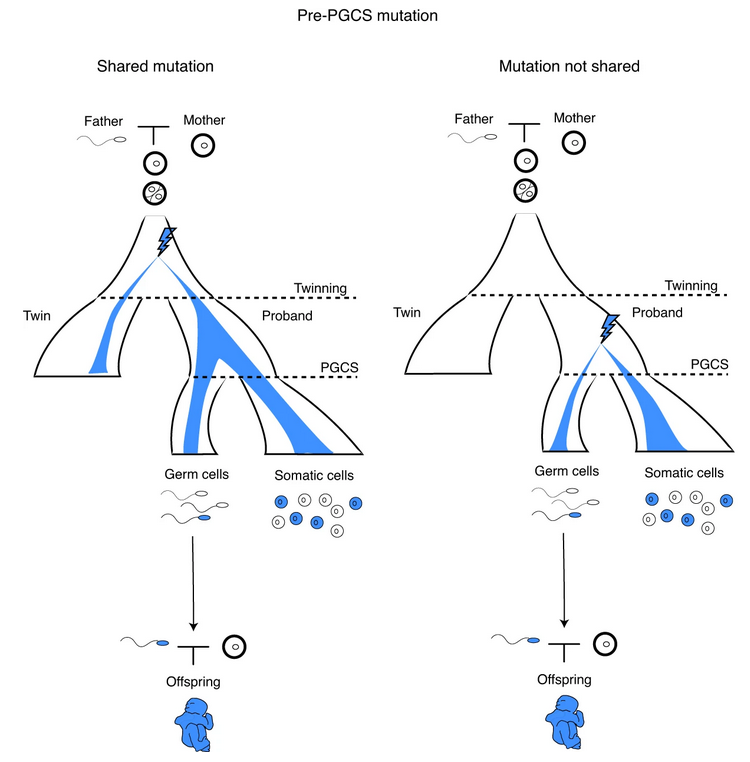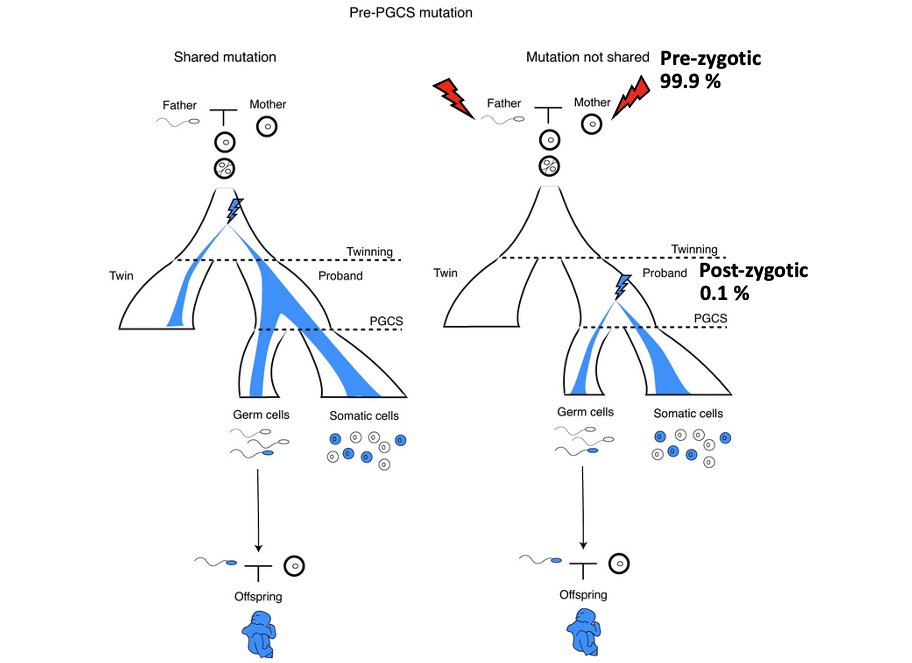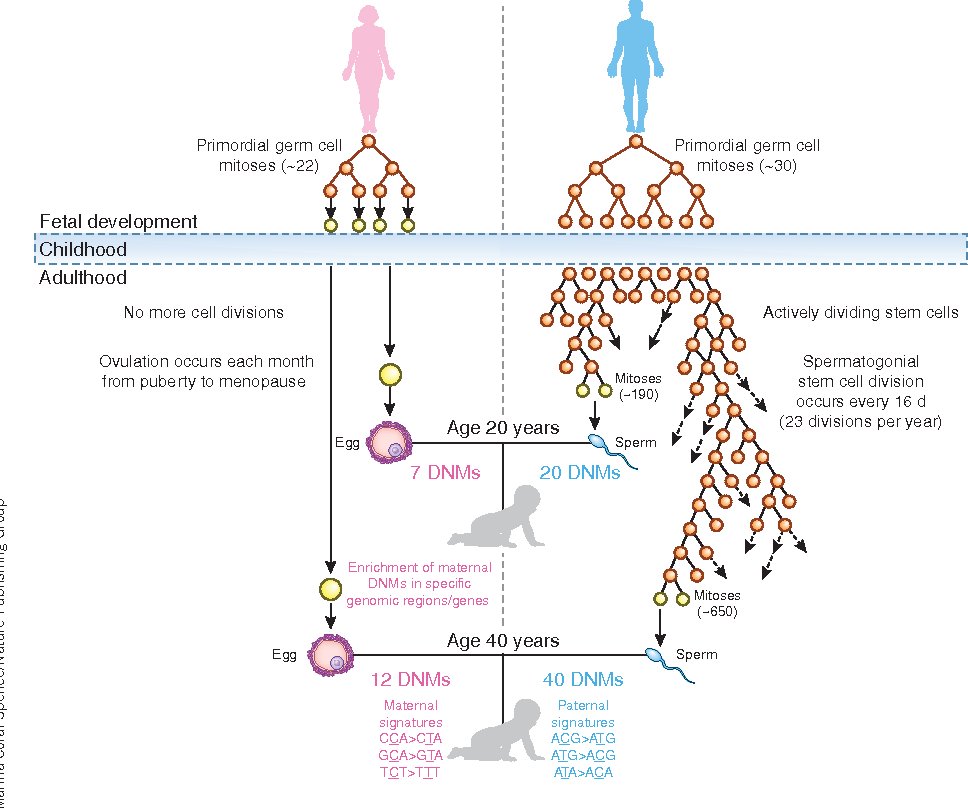This is an ingenious paper. No doubt about that. But it is getting media attention for the wrong reasons. 1/8 https://www.nature.com/articles/s41588-020-00755-1
This paper is one of 100s of papers from deCODE that have repeatedly proven how much deeper one can dig into the human biology when you have a whole country sequenced. 2/8
Here the authors studied a subset of denovo mutations (mutations that are present in child's germline, but not in parents') that arise after the zygote formation ( i.e. after the sperm and egg fuse) 3/8
Most of the denovo mutations are pre-zygotic that are present in the sperm or egg. The authors report 5.2 post-zygotic mutations in 15% of twins. This is ~0.1% of the total denovo mutation rate which is 74 per individual. 4/8
https://www.nature.com/articles/nrg3241
https://www.nature.com/articles/nrg3241
Remember a human has 6 billion base-pairs (considering diploid genome). So post zygotic mutation rate is 5.2/6e09=8.6e-10, which is a drop in the ocean. 5/8
Pre-zygotic mutations are less random as they are associated with sex and age of the parents. But, post-zygotic mutations are likely to occur by randomness. 6/8
https://www.nature.com/articles/ng.3629
https://www.nature.com/articles/ng.3629
Hence most of the large effect associations (e.g. with ID, ASD) reported for denovo mutations are likely from pre-zygotic mutations. The current paper shows nothing about the pathogenicity or the phenotypic effects of the post-zygotic mutations. 7/8
Given these background, saying that this paper's findings question the validity of the twin-based heritability studies is unwarranted and meaningless. 8/8 https://twitter.com/dermitzakis/status/1347457028348903424?s=20

 Read on Twitter
Read on Twitter




